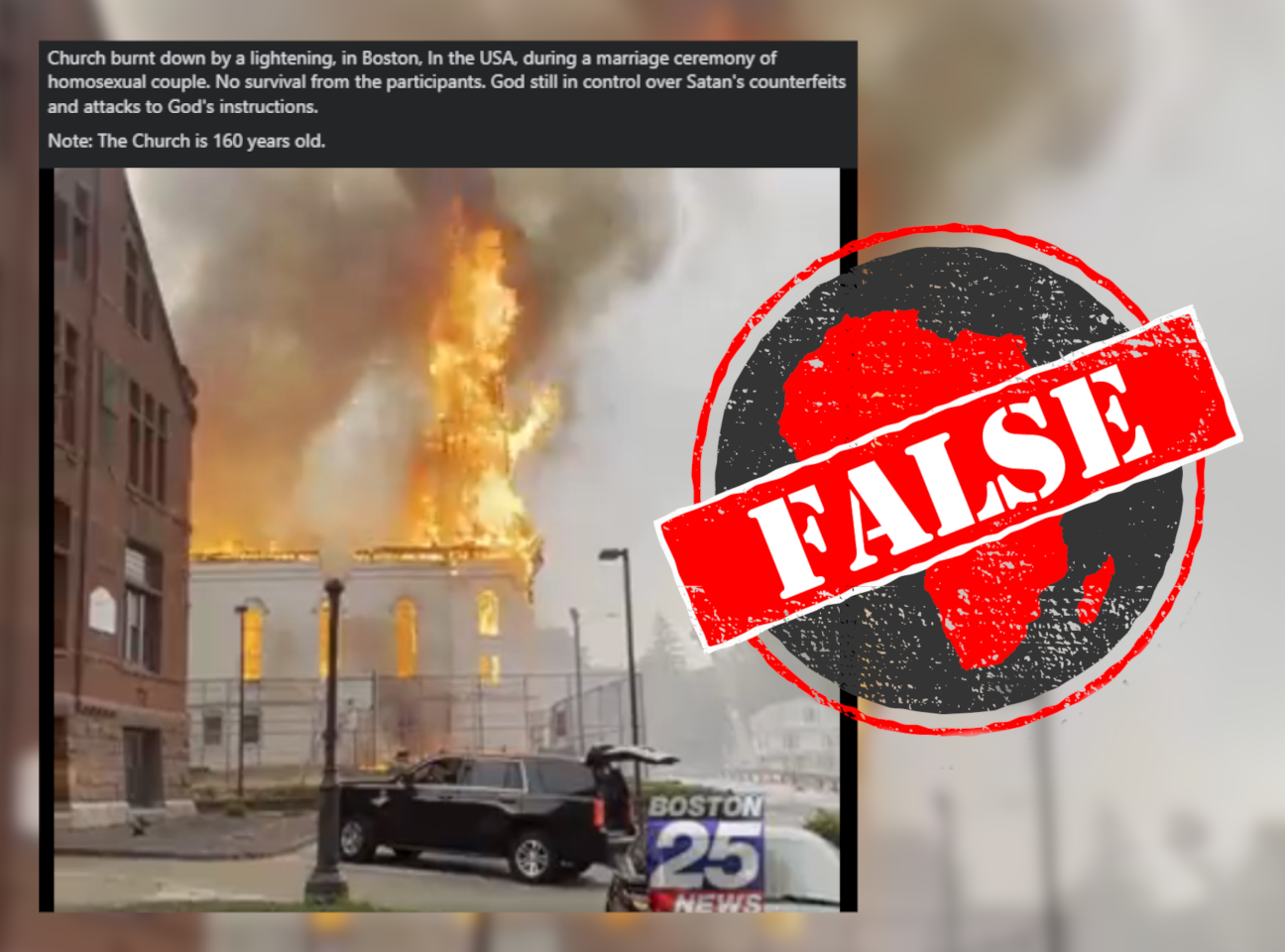IN SHORT: A video going viral on social media in Kenya is captioned as showing a church struck down by lightning as a gay wedding ceremony was being performed. But this is pure fabrication.
A video going viral on Facebook and Twitter in Kenya shows a building being consumed by fire.
Social media users claim it shows the moment a church in Boston, a city in the US, was struck by lightning during a marriage ceremony of a homesexual couple.
“Church burnt down by lightning, in Boston, In the USA, during a marriage ceremony of a homosexual couple. No survival from the participants. God is still in control over Satan's counterfeits and attacks on God's instructions,” a user captioned the video.
Homosexuality remains criminalised in Kenya.
The video has also been posted here, here, here, here, here, here, here, here and here. It has also been posted in other African countries here, here and here.
But does the video show a church struck down by lightning while a marriage ceremony was performed? We checked.

No evidence
The video carries the logo for Boston 25 News, a local TV channel broadcasting in the Boston area. We searched for the video on the channel’s verified Facebook page and found it.
The video was posted on 3 June 2023 and shows a centuries-old church razed by fire in the town of Spencer, some 90 kilometres west of Boston. The fire was also reported on the Boston 25 News website.
The news article said that lightning was suspected to be the cause of the fire. Noone was inside the church when the fire started.
There were no reports of any wedding ceremony, of either a hetero- or homosexual couple, at the church at the time. The information is false.
Republish our content for free
For publishers: what to do if your post is rated false
A fact-checker has rated your Facebook or Instagram post as “false”, “altered”, “partly false” or “missing context”. This could have serious consequences. What do you do?
Click on our guide for the steps you should follow.
Publishers guideAfrica Check teams up with Facebook
Africa Check is a partner in Meta's third-party fact-checking programme to help stop the spread of false information on social media.
The content we rate as “false” will be downgraded on Facebook and Instagram. This means fewer people will see it.
You can also help identify false information on Facebook. This guide explains how.


Add new comment